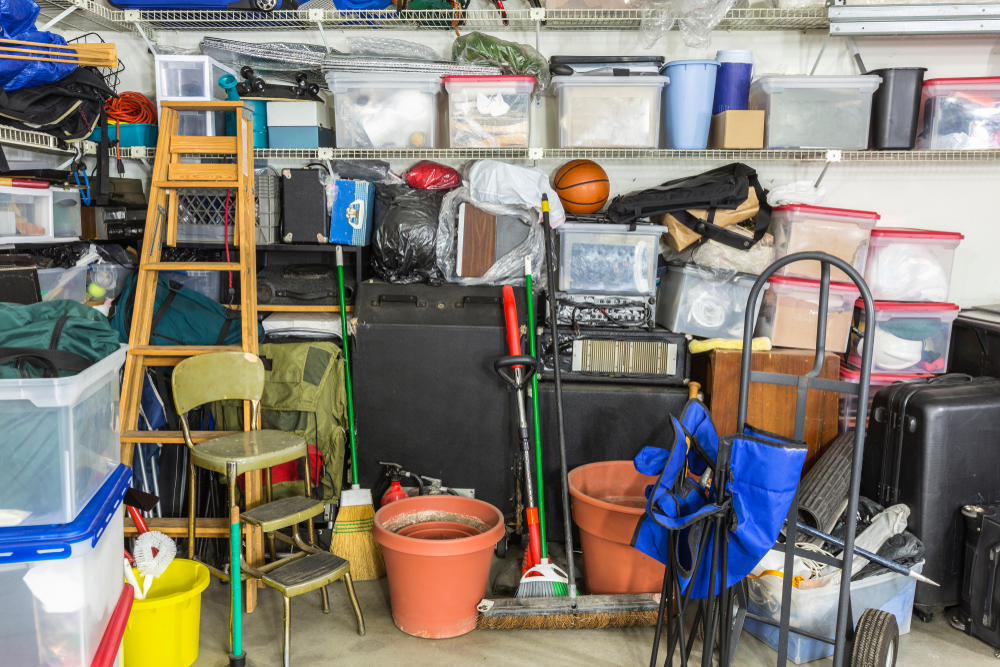
For years, organizational expert Marie Kondo advised people to clear their homes. An object that does not “a spark of joy” had to be released, and one had to be careful not to “go back to the mess” by buying things one didn’t really need.
A condo recently adopted her own return to the mess. This is what she told a reporter from Washington Post, “My house is a mess.” Now a parent of three young children, clearing her shelves is no longer a priority.
Household clutter is such a universal problem that it has catapulted Kondo and her de-cluttering method to international fame. But it’s also such a consuming problem that even Kondo isn’t immune.
Social scientists are learning more about the human desire to hold onto things. It’s a complex question, and they’re finding that there’s more than just one reason behind our messy habits.
Saving the mess for later
From a young age, children are taught to save for the future. They are told to put money in piggy banks and not eat all their Halloween candy at once. Some watch their parents turn their old clothes into items for their younger siblings.
As adults, many people keep items with the thought that they may need them in the future or hope that their children will want them one day. You probably have a bag of random cables that might come in handy, right? That save-for-later mentality came at some point when most people live in small urban spaces that quickly become crowded.
Read more: Why deep cleaning videos are so satisfying to watch
People also have a sense that an item may one day be worth money. Programs like Antiques Roadshow portray people as they learn that the items they retrieved from the attic are worth thousands of dollars. scientists have suggested The program gives viewers a sense that their own “worldly possessions” have value and thus gives meaning to their consumerism.
A “save it for later” mentality doesn’t work for most people. But it has paid off for the self-storage industry. There is more than 50,000 self-storage sites across the US full of forgotten items that their owners don’t use but hate to throw away.
See you later
While some people hoard because they think they might need an item in the future, others grab onto items because they’re struggling in the moment to make a decision.
2023 survey in International Journal of Environmental and Public Health Research was inspired by stay-at-home orders during the Covid-19 pandemic. The researchers wondered if all that time at home would cause people to declutter their living environments. They define clutter as an “excess of items” and note that it is different from hoarding, which is considered psychological state.
Read more: Many health risks from stocking animals
The researchers recruited 227 participants who said they were considering a decluttering project. Participants completed a questionnaire that included items on decision-making, procrastination, livability of their home, and feelings about clutter.
The study found that indecisive people struggled with decluttering more than people who were rated as decisive and action-oriented. The authors explain how decluttering is a series of decisions designed to reduce clutter. It’s a planning process that can overwhelm indecisive people who hesitate to take action. Then the act of decluttering can seem overwhelming and the person can avoid organizing tasks while the problem only gets worse.
Studies have also found a link between procrastinators and clutter. 2018 survey in Current Psychology asked 346 young adults (mean age 21.5 years) to complete a questionnaire that included questions about procrastination, rumination, and identity with possessions. The study found that having a messy home predicted high procrastination scores.
Stressed by Clutter
Studies have found that mess is subjective. One person may think a shelf overflowing with books is adorable, while another thinks those books belong in the donation bin.
If a person feels anxious about clutter, studies have found that it is constant source of stress. Many people feel that their homes are a reflection of themselves and believe that their homes should be havens away from the cares of the world. When a messy home fails to provide this refuge, people report the mess negatively affects their well-being and it can disrupt their ability to sleep.
Organization experts like Marie Kondo tell people to only keep items they really love. Others recommend that people avoid shopping and bringing new things into the house. While this advice can be helpful for action-oriented people who can quickly move through the decluttering process, indecisive people may need outside help.
Over the past few decades, firms have specialized in clearance have appeared in the big cities. Upon request, cleaning crews descend on homes or warehouses and quickly decipher which items can be resold or donated (the remaining items are trashed). For many customers, knowing that their goods will have a long life helps them to let go of an item they no longer need or want.

